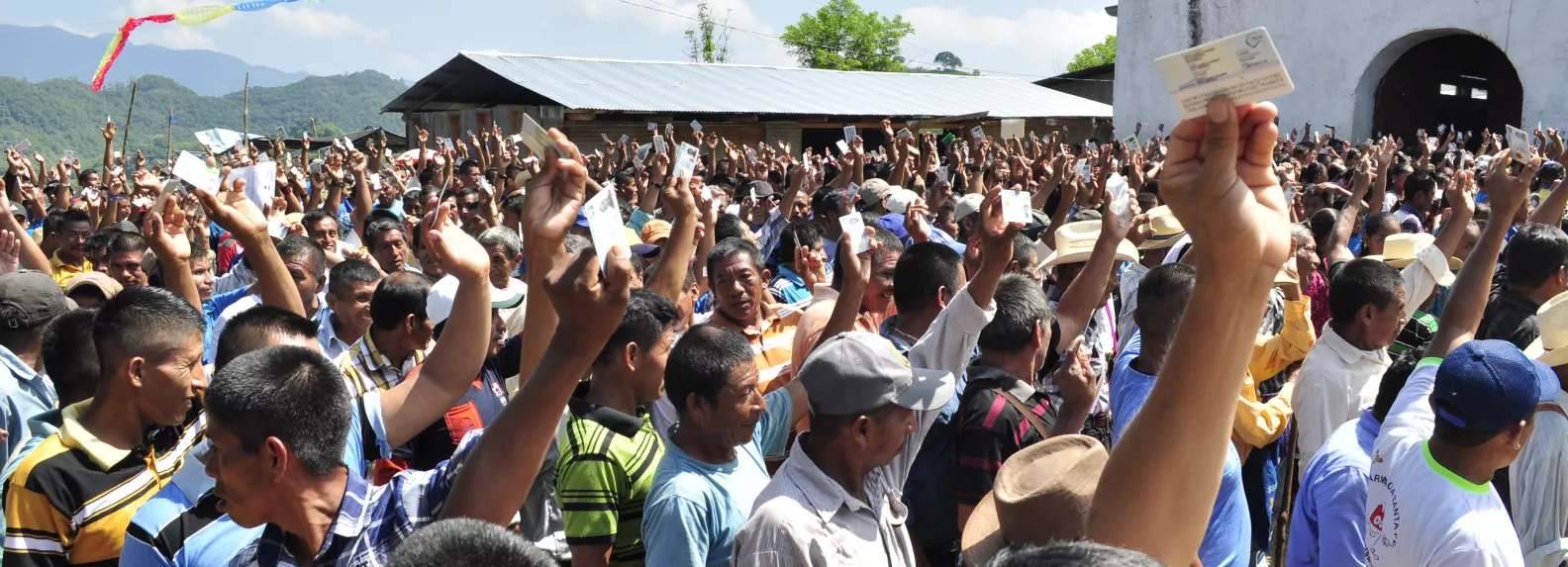
Evictions and violation of the rights of indigenous communities continues
In Guatemala, the conflict over land tenure is a historical and structural unresolved problem, which often culminates in evictions of indigenous and peasant communities, undermining the ancestral rights of these communities and violating basic human rights. According to the organization Cristosal, in 2022 the Government of Guatemala evicted 85 indigenous communities. In the first half of 2023, evictions have continued, especially in the departments of Alta and Baja Verapaz, despite the fact that the main document that establishes international standards on evictions, Annex I of the Report of the Special Rapporteur on adequate housing, as part of the right to an adequate standard of living, in its point 49 prohibits them in an electoral context.
Specifically, PBI followed up on various cases, through accompaniment of the Union of Campesino Organisations for the Verapaces UVOC and the Campesino Committee of the Highlands (CCDA) of the Verapaces:
- Attempted eviction of the Nuevo Paraíso community (Cobán, Alta Verapaz): on April 21, 2023 we received notice of an attempted extrajudicial eviction of this community by armed individuals, presumably linked to the company Agro Palmito RL. Although alerted by both the community and PBI, the National Civil Police (PNC) did not come to help.
- Threat of eviction of the Lajeb Kej community (Tucurú, Alta Verapaz): in May 2023 we received notice of a threat to evict the community from their ancestral land that is being disputed by farmers and other private actors. In the end, the eviction was not carried out. However, the eviction order is still in force.
- Attempted judicial eviction of the Canasec community (San Juan Chamelco, Alta Verapaz): on June 7, 2023 we received the emergency notice for judicial eviction of this community. In the end, the eviction was not carried out due to non-compliance with the protocol that foresees that relocation measures are guaranteed for the affected families. However, the eviction order is still in force.
In response to this problem, in March 2023, an independent fact-finding mission of international human rights lawyers traveled to Alta Verapaz to meet with indigenous communities, civil society organizations and government representatives to understand the structural causes of rural violence. The lawyers observed widespread criminalization stemming from private landowner claims against communities and a lack of legal, institutional and practical recognition of the collective rights of indigenous communities, including the right to decide on the use of their lands and resources, as well as the failure of the State to prevent the use of force and illegitimate violence against indigenous families and rural communities, especially during evictions.
